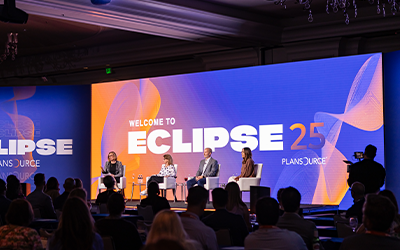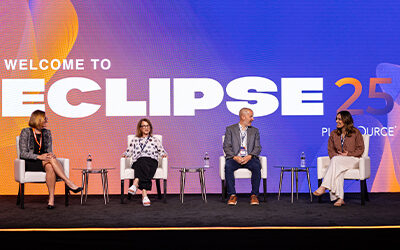What are the Most Important Benefits for Millennials?
Millennials, those born between 1981 and 1996, are the largest living group at 83.1 billion and currently make up over one third of the workforce. More than generations before, these workers value transparency, diversity and personal growth within the workplace and these values are reflected in the key benefits Millennials look for. While many items on most Millennial’s workplace wish lists are long-standing traditional benefits such as “stability, career advancement opportunities, health care, and a livable wage”, however there are unique nuances about this generation that HR teams need to be mindful of if they want to retain top talent.
Healthcare Plans
Often considered “the unluckiest generation in U.S. history”, Millennials have to balance being both budget and health conscious. While they want quality healthcare, this generation is more likely to do their research to make sure the plan they choose and doctors they see are the best choice financially as well. According to the Medical Group Management Association, Millennials “are less likely than previous generations to rely on a medical system that dissatisfies them or that they don’t trust” and “twice as likely as Baby Boomers and Gen Xers to request cost estimates before undergoing medical procedures and treatment.”
When deciding what types of plans to offer, it is important to keep in mind that Millennials are budget conscious making HDHPs and HSAs a great option. HDHP’s are a more economical plan as monthly premiums are typically lower, plus HSA’s give them the freedom to spend on their healthcare as they see fit. 1 in 5 Millennials cannot afford routine healthcare expenses so more economical plans with lower premiums, like HDHPs, have grown in popularity. Additionally, HSA’s give them the freedom to spend on their healthcare as they see fit. For a generation that values transparency and doing their own research, this type of medical plan provides increased flexibility and control over their healthcare experience.
Decision support tools also resonate with Millennials because they prefer to assess their options rather than just blindly signing up for the same plan year after year. According to PNC Healthcare, “50% of Millennials compare insurance options online”. Consider adding a calculation-based, data-driven decision support tool this upcoming OE to appeal to your workforce and provide them with hyper-personalized benefit recommendations.
Wellness Programs
As we mentioned before, Millennials are a very health-conscious generation but that goes beyond physical health – 71% believe good health is comprised of both physical and mental wellness. Numerous studies show that this generation strives for a higher level of perfectionism, which in turn has increased rates of anxiety and depression. While historically a taboo topic, the American Psychiatric Association found “62% of people ages 20 to 37 feel comfortable discussing their mental health at work, compared with about half as many people ages 54 to 72” and we see this is the benefits Millennials are requesting most often.
If their company does not support their mental wellbeing, many Millennials will leave. In fact, a study by Mind Share Partners showed that 50% of Millennials have left a job for mental health reasons. Workplace trends today such as limited staff and resources, rising workloads and long hours result in higher levels of burnout and decreased mental health among employees. As a result, many employees believe it is their employer’s responsibility to offer proper resources and will leave if they do not meet this need.
As mental health becomes a “must-have” resource, it is imperative that HR leaders act now to retain and attract talent. However, there are many benefit options and resources out there and it can be hard to navigate. One of the most comprehensive solutions is work-based intervention programs called Employee Assistance Programs (EAP). EAPs “assist employees in resolving personal problems that may adversely affect the employee’s performance” including poor mental health. However, if you cannot afford to add another employer-paid benefit, there are many employee-paid options as well. Look towards your broker and ben admin provider to help you navigate the different mental health resources out there to find the best match.
Financial Wellness
The nickname “unluckiest generation” exists for a reason. According to The Washington Post, “the average Millennial has experienced slower economic growth since entering the workforce than any other generation in U.S. history.” Plagued by reduced income, steep student loans and high credit card debt it is no wonder “61% of Gen-Z and 57% of Millennials reported they would feel less stressed about their overall financial situation if their employer offered financial wellness benefits.”
The extreme level of financial burden many Millennials feel increases their risk for both physical and mental health decline, so providing financial benefits and resources are just as crucial to this generation as health and mental wellness benefits. Employers can do this in a lot of different ways from 401(k) plans with matching benefits to financial counseling or even student loan repayment or tuition support.
Want to Learn More?
If you want to learn more about key workplace benefit trends and statistics, download our 2022 Benefit Trends Report. Additionally, to see examples of the many unique benefit providers out there that can fulfill these employee needs, check out the PlanSource Partner Marketplace.
Empathy, Innovation & Action: Top Takeaways from HR Leaders Who Spoke at Eclipse
Empathy, Innovation & Action:Top Takeaways from the HR Leaders Who Spoke at...
Charting the Future of PlanSource: Our Vision for What’s Ahead
Discover how PlanSource unveiled game-changing AI innovations at Eclipse 2025, transforming how HR leaders manage benefits and how employees choose them. The future of benefits starts here.
Navigating New Requirements with the Paperwork Burden Reduction Act
Navigating New Requirements with the Paperwork Burden Reduction...




